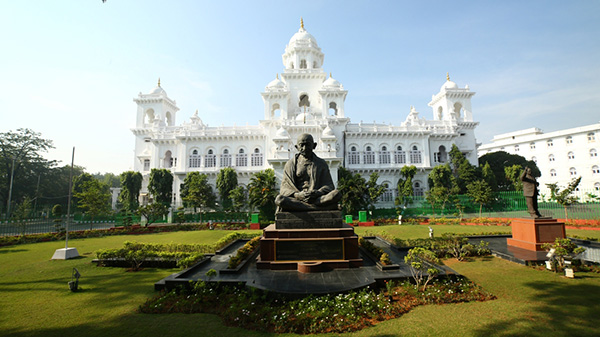Rural Management

Recently a magazine interviewed me about IRMA, rural management and my career. These were my responses:
1. What are you doing now? How did you get there after leaving IRMA? Is this what you wanted to do?
A. I am currently the Chief Executive of ITC’s Agri Business Division. This is my second job. I joined ITC after serving a farmers’ cooperative for more than six years. Making a professional career in “rural management”, the way I understood, is what I wanted to do after IRMA; I believe that’s what I am doing now. What attracted me to IRMA in the first instance was the idea of fusing “rural” with “management”. Till IRMA happened, it was only “development” that suffixed “rural” and only “business” that prefixed “management”. My first serious interface with a rural Indian was in the Field Work component of IRMA. That interface exposed me to the extraordinary business acumen and resourcefulness of Indian farmers, most of who still live in abject poverty because of disadvantaged access to resources due to the structure of our economy. This realization gave me the purpose of my professional career “help alter this skewed structure and bring the rural people access to the resources that enable them unleash their full potential”. That motivation, aligned with ITC’s triple bottomline approach, helped me architect the eChoupal model that enmeshes the corporate objective of shareholder value creation with the societal goal of poverty alleviation.
2. What was the objective with which IRMA was started? Has this objective been met? Do you think there was too much idealism associated with this objective? IIM Bangalore was started for the public sector; is it creating PSU managers?
A. At a tactical level, IRMA was set up to produce professional managers for the cooperative sector that embarked upon the mega Operation Flood project. This, to my mind, is well served. At a broader level, the idea was to educate a new breed of professional rural managers having appropriate values and ethos to help rural organizations and institutions in professionalizing their management and empower rural people through self-sustaining processes. Even this objective is well served, because you would come across impact-making IRMA graduates in every form of organization that is set up along India’s developmental trajectory over these thirty years. At the broadest level, IRMA is more than just an institute to train managers. There is research, consulting and policy advocacy in rural management domain. I don’t think there was any idealism associated with these objectives. It was a right idea at the right time. If at all, what we missed as a nation is setting up more IRMAs!
3. Traditionally, 50% of IRMA graduates went to the banking and insurance sectors; 20% to the NGO sector; and 25% to the cooperative sector. Is this an ideal mix?
A. The mix is determined by the market dynamics year-on-year. This mix, by itself, is not very material. If any of the cooperatives or NGOs returned empty handed from the campus placements when they desperately needed IRMA graduates, I would be concerned. Again, as I said in the answer to Q2, more IRMAs is the answer rather than trying to alter the market dynamics.
4. Was IRMA always a second choice – for people who couldn’t get into the IIMs?
A. Yes, this would be true for several people, but not for everyone; certainly not for the majority. The selection process – especially the personal interview – would have filtered out many such candidates. On the other hand, for several candidates IRMA is actually a preferred choice over IIMs.
5. What is different about the teaching at IRMA?
A. At a fundamental level, the management concepts, tools & techniques taught at IRMA are no different from the curriculum of any other MBA programme. However, the rural cases used in teaching, and the relatively larger component of field work (as opposed to class room) expose the students to rural realities. The weightage given to social sciences is also higher. All of this helps build the personal value system of the students. As a result, an IRMA graduate, wherever s/he is working, has a strong bias towards sustainable and equitable development of the world.
6. Some people do join as idealists. But the very poor salaries in the development sector woo them away to the corporate sector and they end up selling toothpaste. But is there anything wrong with it? Shouldn’t you be free to earn a living the way you choose? Is joining IRMA akin to joining a temple and accepting a lifetime of penance?
A. As I said in response to another question, market dynamics should determine these decisions. But, I haven’t really come across many people joining as idealists and moving away to corporates merely for high salaries. Quite to the contrary, I saw many who joined IRMA as a next best MBA programme, but became fully converted rural managers willing to work for lower salaries!
7. Is the new importance of rural India changing things in any way?
A. The new importance of rural India is, in fact, bringing real life and meaning to the phrase ‘rural management’, because this rural India is demanding new & innovative institutions to serve the rural poor in an increasingly free market economy.
8. IRMA is today selling itself to potential students on the basis of placements and salaries. Does this fit in with its original mandate? (The highest salary this year was Rs 9 lakh while the average salary was Rs 5.63 lakh.)
A. I don’t think IRMA is selling on the basis of placements and salaries alone. These aspects are also part of the holistic package any potential student would look at. From what I know, IRMA’s mission and the type of organizations where the graduating students would work for are clearly highlighted in all communications. The fact that today’s market dynamics of rural India offer diverse jobs and pay better salaries needs to be communicated. This may not fit in with “original” mandate, but the mandate itself changes with evolving times…
9. The report by Stratdesign India Pvt Ltd, Mumbai wanted IRMA to model itself on the IIMs. The dispute this led to between then Chairman Verghese Kurien and director K. Pratap Reddy practically brought the institute to a standstill with students disenchanted and faculty leaving? Has it affected the image of the institute? Do you think IRMA needs to go the IIM way?
A. I am not aware of the contents of this report, nor am clear about the meaning of ‘modeling along the lines of IIMs’; also, if that’s the primary cause of turbulence at IRMA a few years ago. In any case, those difficult times are behind us. If I am not wrong, the number of applicants for entrance exam is more than ever, the faculty strength is at its highest ever. If those are the metrics, IRMA brand is doing well! I do proudly say ‘I am an IRMAn’ in any forum, and have always received positive vibes back 🙂










